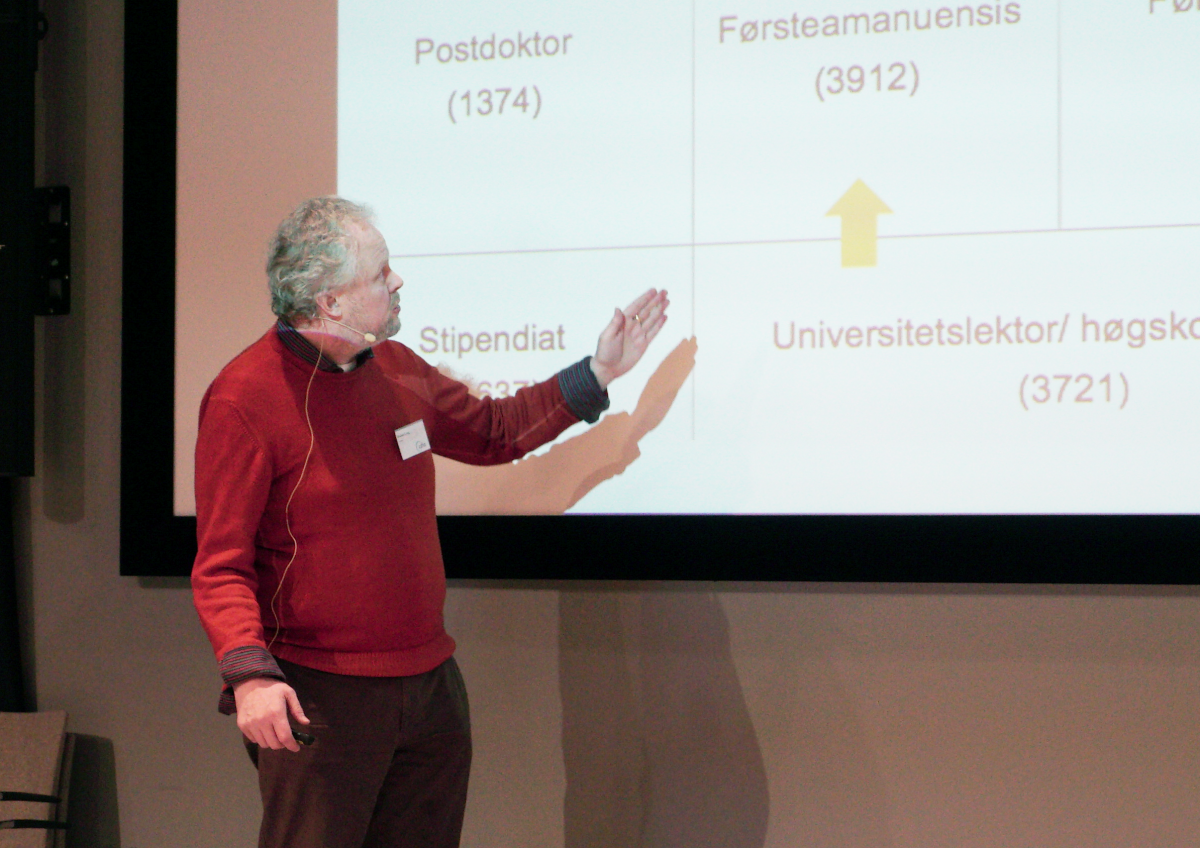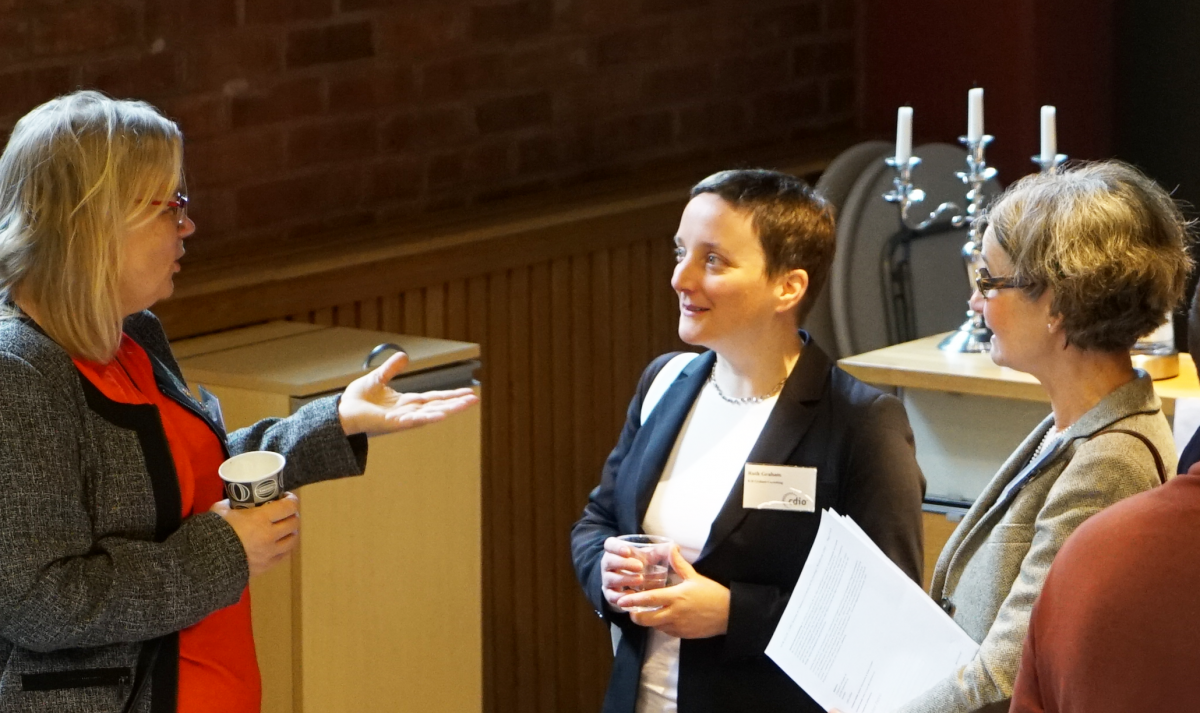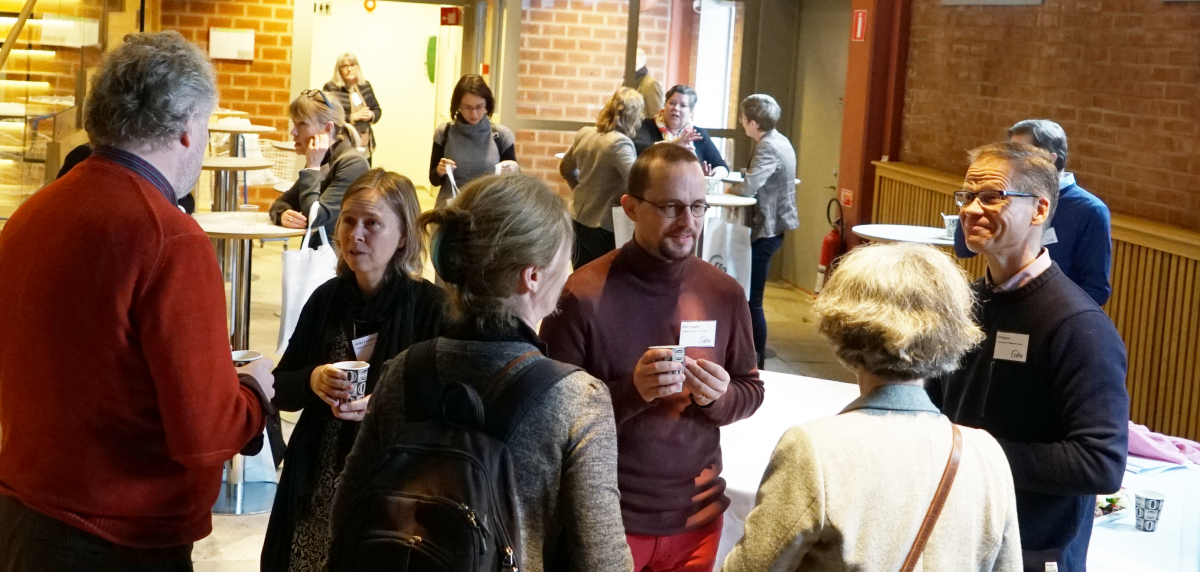Today research achievements are rewarded higher than teaching. Only 12 % of university staff recognise teaching as important in promotion to professorship, according to Dr Ruth Graham. At the CDIO meeting in Gothenburg pedagogic and professional competence development and promotion at technical universities was discussed.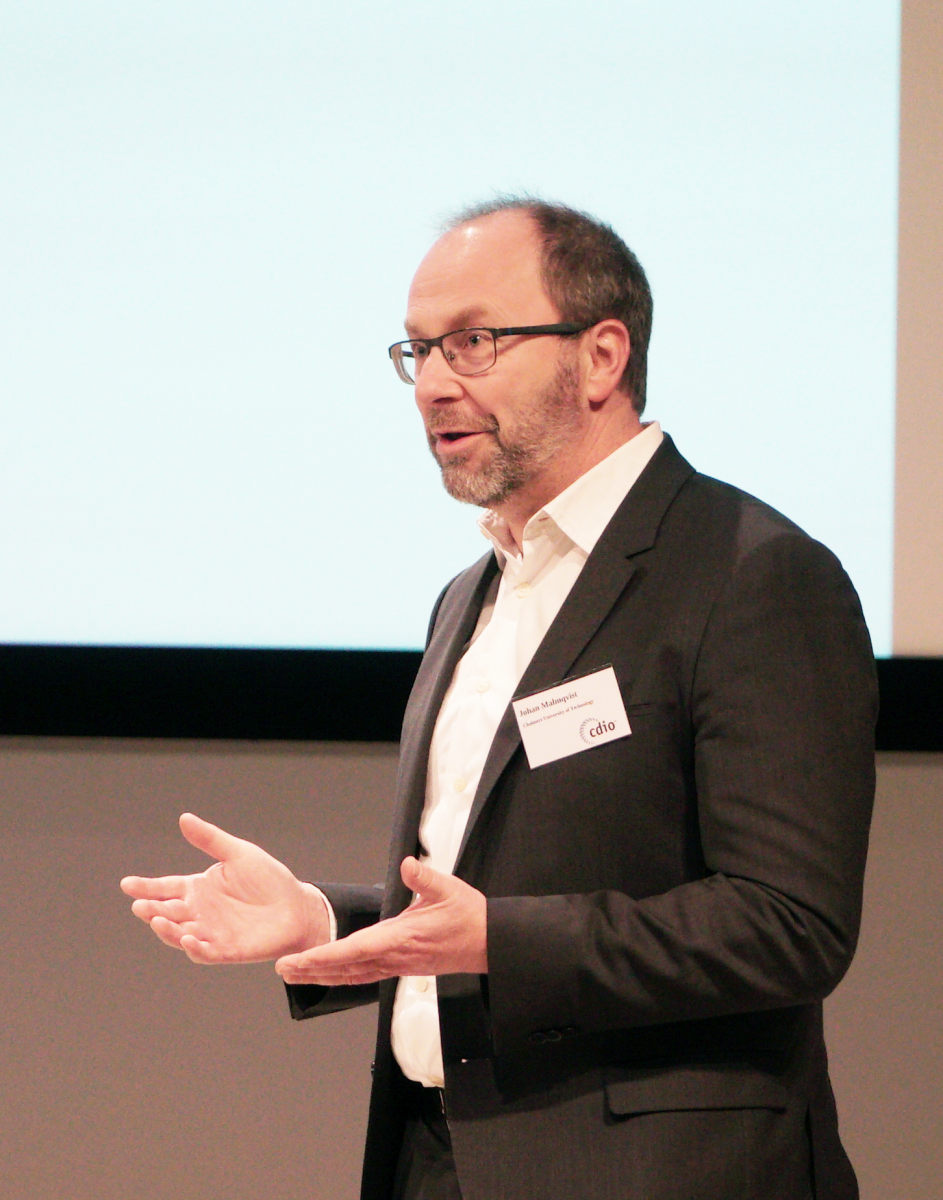
Pedagogical skills and qualifications were on the agenda for the CDIO meeting in Gothenburg on March 8th. The meeting was moderated by CDIO co-Director Johan Malmqvist.
New framework for evaluation of teaching achievements
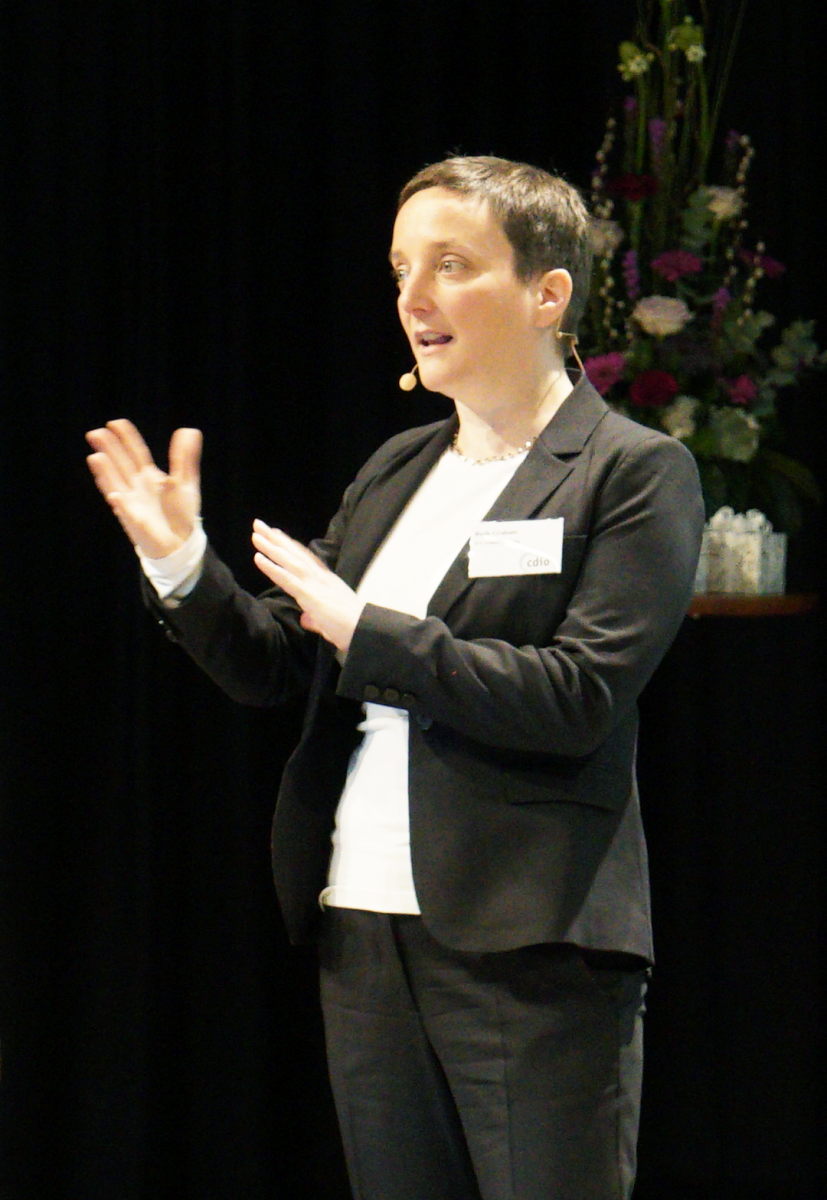 Dr Ruth Graham held the first presentation. She has, on behalf of the UK Royal Academy of Engineering, conducted a study on the role teaching plays in faculty career advancement. When university staff members were asked about about how important different factors are in promotion to full professor, more than 90% answered that research is “very important”. Only 12 % answered the same about teaching and education. However, 60 % of the respondents would like teaching to be very important. This shows that there is a big gap between the actual and wanted scenario. Dr Graham explained why there is such a gap.
Dr Ruth Graham held the first presentation. She has, on behalf of the UK Royal Academy of Engineering, conducted a study on the role teaching plays in faculty career advancement. When university staff members were asked about about how important different factors are in promotion to full professor, more than 90% answered that research is “very important”. Only 12 % answered the same about teaching and education. However, 60 % of the respondents would like teaching to be very important. This shows that there is a big gap between the actual and wanted scenario. Dr Graham explained why there is such a gap.
- "Our study showed that current methods to measure quality in teaching are not robust or transparent. One of the challenges is how teaching achievements can be ‘portable’ and recognized between universities in an equivalent manner to research achievements."
In order to make it easier to reward teaching, one of the goals in the study was to develop a new framework for the evaluation of teaching achievement during faculty appointment, promotion and professional development. A pilot version of the framework is now being evaluated at a number of universities across the world to see how well works in practice.
- "So far we have received positive feedback."
>> Read more: Evaluating teaching - study and framework
>> Download Dr Ruth Graham's presentation slides.
Chalmers’ pedagogical portfolio
The next speaker was associate professor Lena Peterson from Chalmers University of Technology. She presented Chalmers’ guidelines for how to document pedagogical qualifications. When someone seeks promotion or employment at Chalmers University of Technology, pedagogical qualifications and competence must be documented in a “pedagogical portfolio”.
Professor Peterson explained that the purpose of the portfolio is help the individual teacher to reflect on his or her pedagogical practice. For example, all candidates are requested to describe the approach to teaching, supervision and student learning that forms the basis for their pedagogical work. At Chalmers, all candidates for promotion and recruitment to academic positions are evaluated by an pedagogical expert who assesses the person’s teaching skills, theoretical pedagogical knowledge and, last but not least, attitude and willingness and ability to develop their skills.
In Lena Peterson’s view, the content of Chalmers pedagogical portfolio is quite typical for Swedish universities.
- "I think that there is a common view about what pedagogical skills are that has been developed in Swednet. The definition has then been adjusted to the different schools. I would say that the Chalmers model for a pedagogical portfolio resembles many others."
>> Read more: Chalmers' pedagogical portfolio
>> Read more: Swednet – a Swedish network for pedagogical development in higher education [In Swedish]
>> Download Lena Peterson’s presentation slides.
Design courses for learning
Professor Peterson was followed by Kristina Edström, associate professor at KTH Royal University of Technology, Stockholm. Professor Edström expressed her concern about how course evaluations affect the relationship between teachers and students. Edström argued that typical course evaluations focus too much on student satisfaction and too little on student learning.
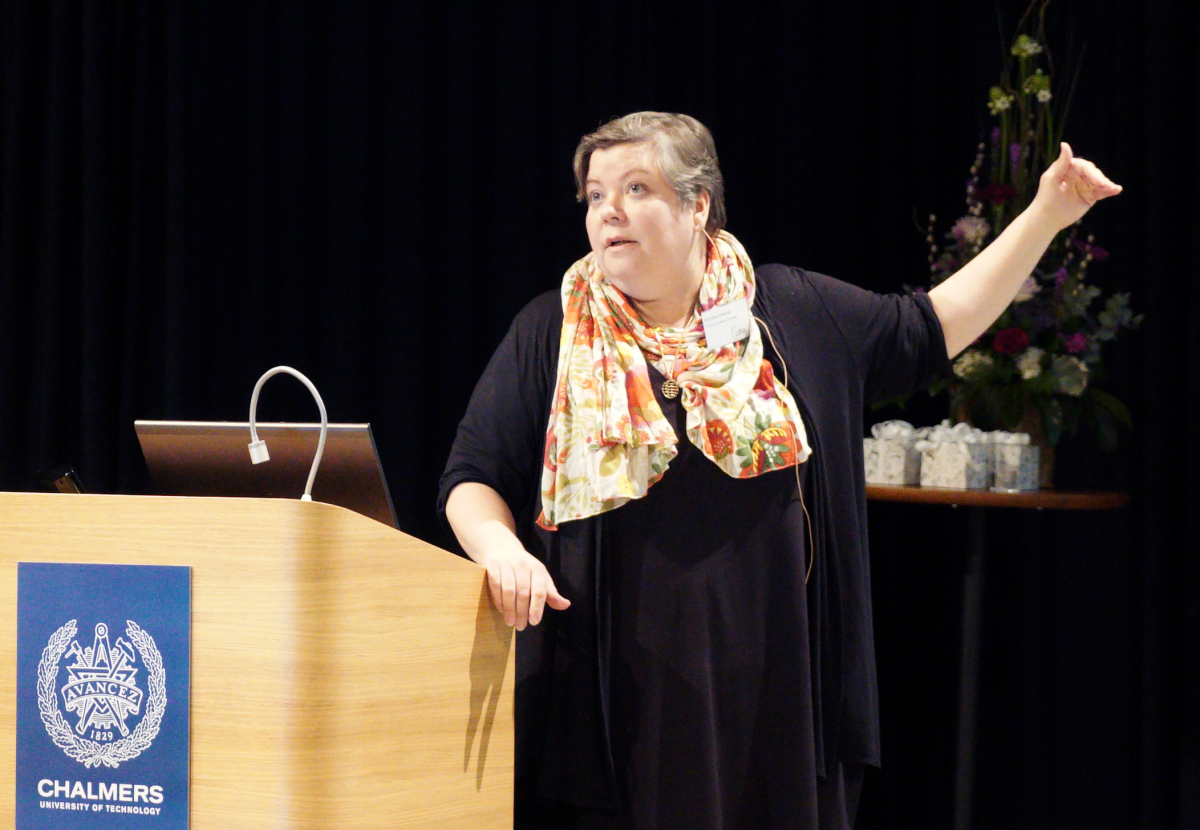 - "What are the consequences of measuring student satisfaction? The teacher should not have to focus on pleasing the students. When we challenge students to learn, we need to do that without having to be concerned that their reactions could harm our career. If that happens, the teacher becomes an entertainment provider and the student a consumer. What we really want are students that learn and develop."
- "What are the consequences of measuring student satisfaction? The teacher should not have to focus on pleasing the students. When we challenge students to learn, we need to do that without having to be concerned that their reactions could harm our career. If that happens, the teacher becomes an entertainment provider and the student a consumer. What we really want are students that learn and develop."
To give students good support, pedagogical skills are needed. But what does pedagogical skills mean? Kristina Edström said that there are four main qualities that are important for a teacher.
- "Firstly, the teacher should be able to set clear goals. Secondly she or he should be able to uphold the quality bar and only approve the students that really fulfill the goals. Thirdly, a student plan has to be created which supports the student in reaching the goals – so that we can approve them with joy! Finally, efficiency must be kept in mind. Time and resources should be used where they have the highest effect on learning."
Edström pointed out the crucial strategic importance of the requirements on pedagogical skills when recruiting new faculty members:
- "Demands (on pedagogical skills) we make today determine the quality of the faculty in 10-20 years."
>> Download Kristina Edström's presentation slides.
A Norwegian project for recognizing pedagogical merits
Also in Norway there are initiatives to improve the quality in education. Reidar Lyng, associate professor at the Norwegian University of Science and Technology (NTNU), outlined NTNU’s plans for a system for proving pedagogical skills and qualifications. One novel element at NTNU is the opportunity for faculty to gain recognition and reward for outstanding pedagogical skills, being named “highly qualified teacher”. Professor Lyng discussed the criteria for obtaining this rank:
- "A highly qualified teacher has developed her or his work qualitatively over time. A merited teacher has a scientific approach to teaching and learning and is also a dedicated and talented educational leader."
>> Read more: Pedagogisk meritteringssystem [In Norwegian]
>> Read more: Recognition of pedagogical competence [In English]
>> Download Reidar Lyng's presentation slides.
